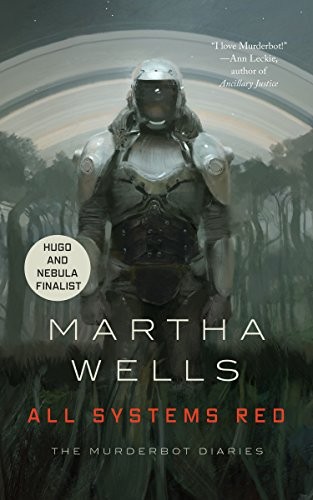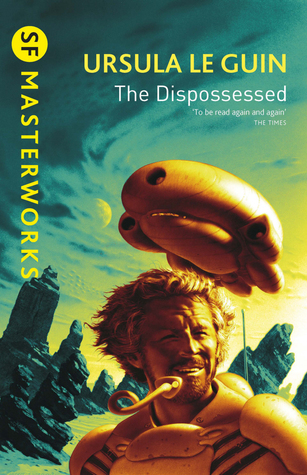Ich drücke mich sehr davor das Tomasello-Buch zu lesen.
User Profile
Ich musste mein anderes Konto schließen, weil es voll war. Ich interessiere mich für Freiheit, Ökonomie, Geschichte und Neurowissenschaften. Lese hierzu querbeet und nicht nur die üblichen Verdächtigen, um die Frage zu beantworten, wie können wir freier werden.
I had to close my other account because it was full. I am interested in freedom, economics, history and neuroscience. Read across the board and not just the usual suspects to answer the question, how can we become more free.
English/German
This link opens in a pop-up window
Library Liberty Zed's books
2025 Reading Goal
Success! Library Liberty Zed has read 18 of 12 books.
User Activity
RSS feed Back
Library Liberty Zed replied to Library Liberty Zed's status
Library Liberty Zed started reading Rückkehr nach Reims by Didier Eribon
Library Liberty Zed reviewed Geile Zeit by Niclas Seydack
Bleib lieber beim Journalismus!
2 stars
Content warning Unfaire Bewertung
Lieber Niclas, bitte presse deine Geseiere nicht in 172 Seiten. Als Nicht-Zielgruppe, aber Mit-Wisser deiner Generation, raufte ich meine Haare, angesichts der oberflächlichen soziologischen Betrachtungen, der jammerigen Perspektive, und deiner Furcht vor der Errungenschaft der Zeit, die Individualität. Warum stellst du deine Anekdoten neben die weltumspannenden Ereignisse? Warum ist das Buch eine Aneinanderreihung? Warum sind immer die anderen schuld? Ich schließe mich der Rezensionsnotiz des Perlentauchers zur Süddeutschen Zeitung an: Mit Niclas Seydacks Buch, das die Autobiografie einer gesamten Generation sein soll, kann Rezensent Philipp Bovermann wenig anfangen. Seydack propagiere die ganze Zeit ein kollektives "Wir", das die gesamte Millennial-Generation einschließt, so Bovermann. Mit diesem "Wir" meint Seydack immer nur ein "Ich", das er zum Maßstab für alles erhebt, moniert der Kritiker. Dabei liest der Rezensent zwischen den Zeilen vielmehr das "Selbstbekenntnis einer neuen Bürgerlichkeit", die das individuelle Erleben zum "Maßstab und Subjekt der Gesellschaft" erhebt - eigentlich genauso wie die geschmähten "Boomer". Die eigentliche Vielfalt der Erfahrungshorizonte wird von Seydack mit diesem behaupteten "Wir" plattgemacht, ärgert sich Bovermann. Letztendlich hat es nicht mehr zu bieten als Phrasen, die wenig Erkenntnisgewinn bringen und bleibe eine Autobiografie, geschrieben "in der ersten Person plural", schließt der mehr als bediente Kritiker.
Library Liberty Zed finished reading Die Schlange im Wolfspelz by Michael Maar
Library Liberty Zed reviewed Die Schlange im Wolfspelz by Michael Maar
Library Liberty Zed reviewed Blutbuch by Kim de l'Horizon
Zurecht den Buchpreis gewonnen
4 stars
Ein psychologisches, bzw. psychopoetisches Werk mit einer wunderbaren Verknüpfung von Stil und Inhalt. Es geht um die Suche nach Identität, in einer Gesellschaft, die nur Mainstream-Identitäten anbietet. Das Ende, bzw. letzte Drittel ist mir dann wiederum etwas zu therapeutisch und wiederholend geraten?
Library Liberty Zed started reading Die Schlange im Wolfspelz by Michael Maar
Library Liberty Zed started reading Blutbuch by Kim de l'Horizon

Blutbuch by Kim de l'Horizon
Eine Lektüre, die an der Körperwahrnehmung und an den eigenen Gewissheiten rüttelt.
Die Erzählfigur in Blutbuch identifiziert sich weder als …
Library Liberty Zed reviewed Neuroqueer Heresies by Nick Walker
Library Liberty Zed reviewed Der Geschmack der Freiheit by Ute Cohen
Snobistisch
3 stars
Auch wenn die Autorin immer wieder versucht, es sich nicht anmerken zu lassen, ist es am Ende ein snobistisches Buch über Kulnarik als Kunstform. Interessant ist sicher die historische Einbettung von Restaurants, Technologien, allgemeinen Trends, und wie zufällig vieles auch ist.
Library Liberty Zed started reading Der Geschmack der Freiheit by Ute Cohen

Der Geschmack der Freiheit by Ute Cohen
reiheit geht durch den Magen
Der Geschmack der Freiheit erforscht die Geschichte der Gastronomie als Spiegel gesellschaftlicher und politischer Freiheit. …
Library Liberty Zed wants to read Der Geschmack der Freiheit by Ute Cohen

Der Geschmack der Freiheit by Ute Cohen
reiheit geht durch den Magen
Der Geschmack der Freiheit erforscht die Geschichte der Gastronomie als Spiegel gesellschaftlicher und politischer Freiheit. …
Library Liberty Zed quoted The Dispossessed by Ursula K. Le Guin (Hainish Cycle, #6)
Content warning Spoiler
We've let cooperation become obedience. On Urras they have government by the minority. Here we have government by the majority. But it is government! The social conscience isn't a living thing any more, but a machine, a power machine, controlled by bureaucrats!
— The Dispossessed by Ursula K. Le Guin (Hainish Cycle, #6) (Page 128)
Library Liberty Zed quoted The Dispossessed by Ursula K. Le Guin (Hainish Cycle, #6)
Here in A-Io they fear me less because they have forgotten the revolution. They don't believe in it any more. They think if people can possess enough thingsthey will be content to live in prison. But I will not believe that. I want the walls down. I want solidarity, human solidarty. I want free exchange between Urras and Anarres.
— The Dispossessed by Ursula K. Le Guin (Hainish Cycle, #6) (Page 107)












